Every time, before the nextsolar eclipse, dozens of hundreds of articles appear whereexpertswarn – under no circumstances should you look at the sun without protection! And every time an eclipse passes, it turns out that there were people who, unfortunately for their own eyesight ignored this advice.
For example, here’s a cautionary tale from the TikToker@iambridgeet, who explains why looking at a solar eclipse with an unprotected eye is a very bad idea. The video has already received over 5.3M views on TikTok, so it’s definitely doing a lot of good.
More info:TikTok
The author of the video opens up about looking at the solar eclipse without eye protection almost 7 years ago
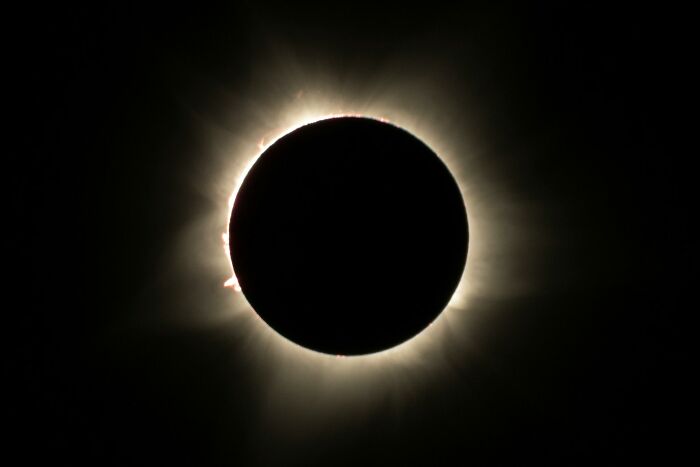
Image credits:Eclipse Chasers (not the actual photo)
“Number one: Do not ever, ever look directly at the Sun”
“Okay, it’s been about six and a half years, I guess it’s time to finally tell my story. Um, it pains me that me and the Orange Man have something in common and that is that, yes, I did look at the solar eclipse six and a half years ago, I didn’t realize or just didn’t get the glasses and I thought it wasn’t gonna be a big deal.
And I closed my right eye. And I stared at the sun for a good, like, 15 seconds. Didn’t think anything of it. Not an issue. The very next day, I woke up, and I woke up on my, I think my right side, and I opened up my left eye to read on my phone. And I couldn’t read every other word.”
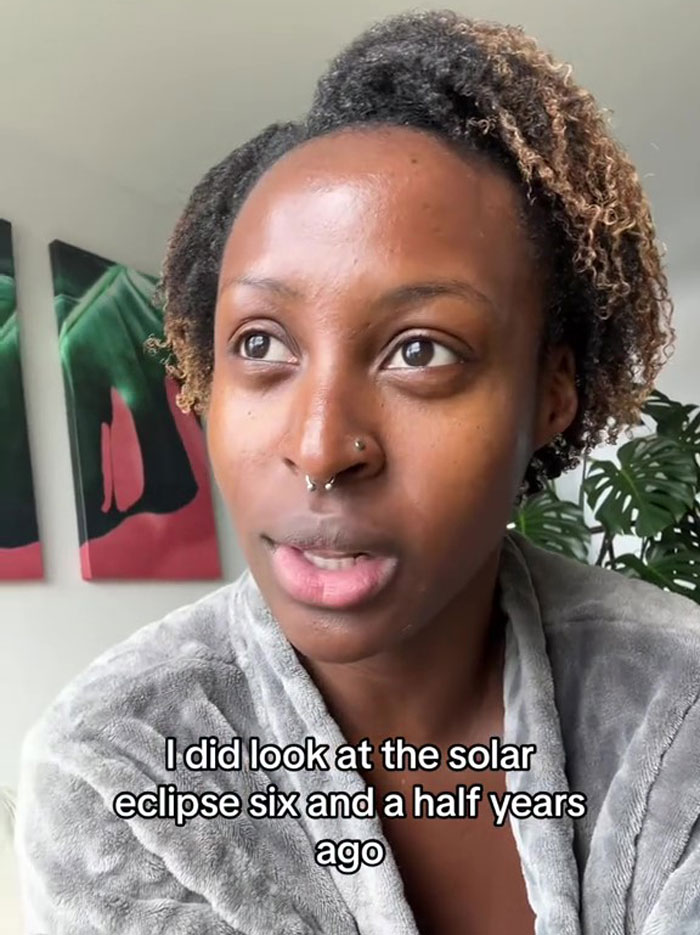
Image credits:@iambridgeet
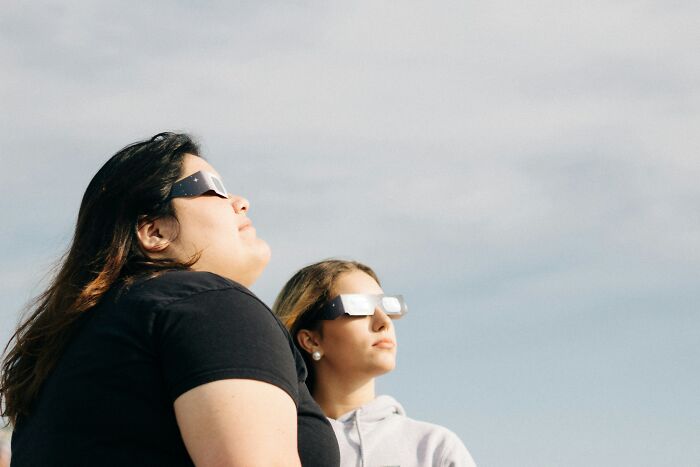
Image credits:Adam Smith (not the actual photo)
“There was like, a blind spot on every other word that I was reading”
“And I was like, okay, that’s weird. Maybe I haven’t, like, woken up. So I woke up, walked around the house. I couldn’t see things, like, I couldn’t, it was like a direct- you know what I mean? And I said, Oh my God. No, no.
And I researched it, solar retinopathy. I say no, no, no. Started driving to the eye doctor and couldn’t see the signs. Like, this all happened in the span of like 10 seconds, only 10 seconds that I stared at the sun.”
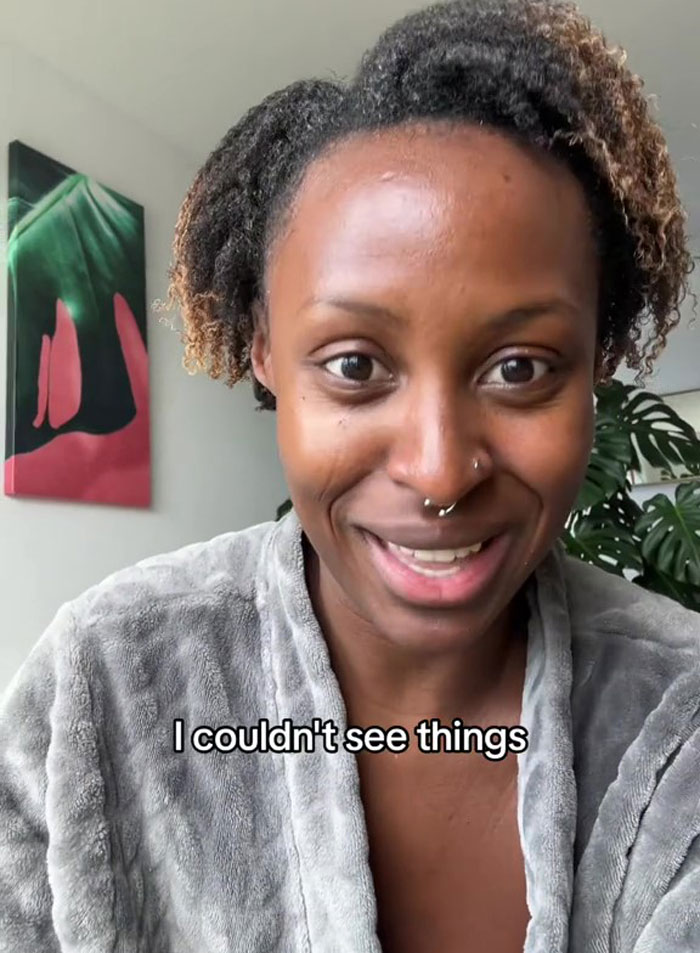
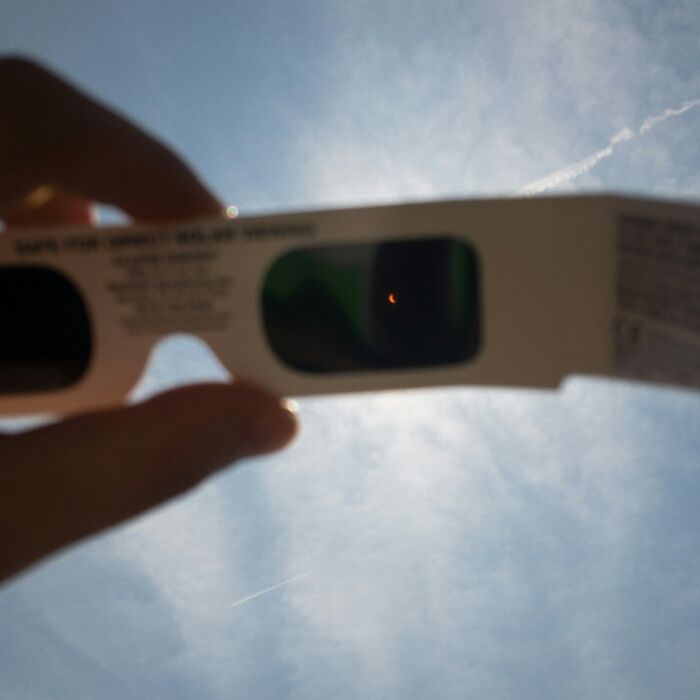
Image credits:Jason Howell (not the actual photo)
“That there is no damage that was done to my cornea. We’ve done all of it. But there was some damage that was done to something. Maybe some of the cells, I don’t know, girl, in which certain parts of my eyes distorted, so I actually now have slow 20/20 vision.
I have slow 20/20 vision because I stared at the solar eclipse without the glasses for 10 seconds six and a half years ago, so don’t be like me. And that orange man.”
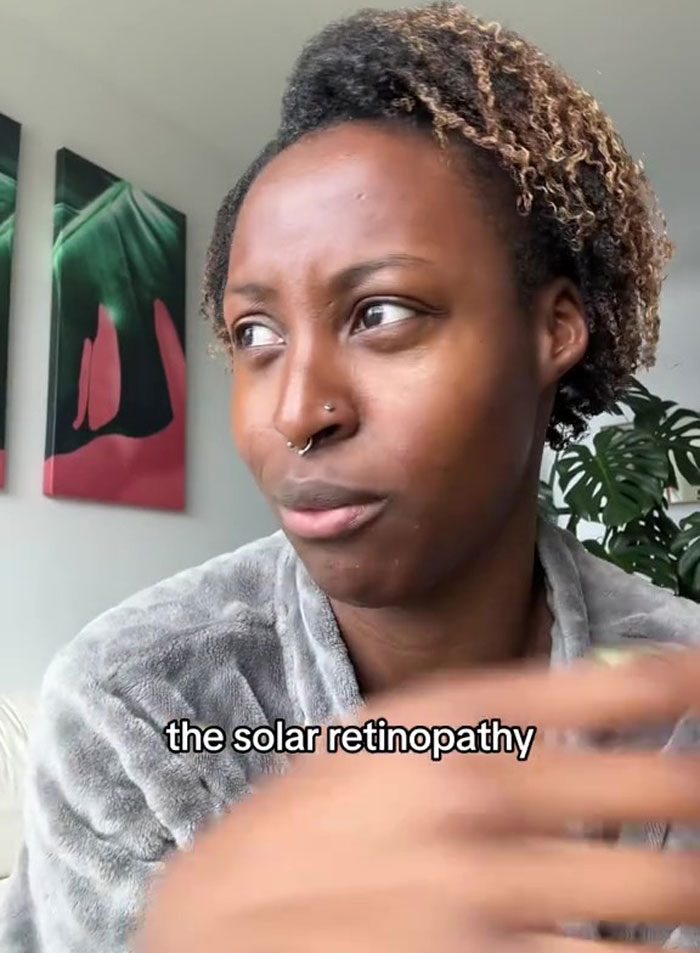
It turned out just 10 seconds of watching the solar eclipse with an unprotected eye caused Bridget’s sight to worsen significantly
So, it was in August 2017, when a total solar eclipse could be observed in the United States, and Bridget also decided to look at the star – after all, astronomers promisedthe nextsuch spectacle almost seven years later! And it didn’t end well for the woman…
At first, the original poster (OP) didn’t feel anything strange or unpleasant when she looked at the sun with one eye, covering the other one with her hand. The problems started the next morning when the author woke up and had trouble reading – she actually couldn’t read separate words in any text.
Bridget had long consultations witheye doctors, and in the end it turned out that in those just 10 seconds that she looked at the sun, some cells in her eye received irreversible damage, and now – even many years after that incident, she was left with slow 20/20 vision.
Be that as it may, the OP urges everyone who ever comes up with the idea of looking at a solar eclipse not to repeat her mistake, and not to take such risks at all. After all, even the most stunning sight inthe worldis definitely not worth the complete or partial loss of your vision, is it?
You can watch the full video here
“Ultraviolet radiation from the sun can ‘burn’ the retina and lead to irreversible eye damage,” states Ruslan Shchipun, director of theTarus ophthalmology clinicin Odessa, Ukraine, whomBored Pandaasked for a comment here. “This can happen even when the eyes are exposed to direct sunlight without the necessary darkness for just a few seconds, especially through a magnifying glass. The result is loss of visual function, which can be either temporary or permanent, depending on the severity of the damage.”
“The danger to your vision is significant, since, firstly, the described light damage to the retina occurs painlessly (the retina doesn’t have pain nerve cells), and secondly, the destructive effect on vision doesn’t become obvious, at least for several hours after the damage. Even when 99% of the sun’s surface is darkened during the partial phases of a solar eclipse, the remaining crescent of the sun is still intense enough to burn the retina. Failure to wear appropriate protection when observing a solar eclipse can result in serious damage to your vision.”




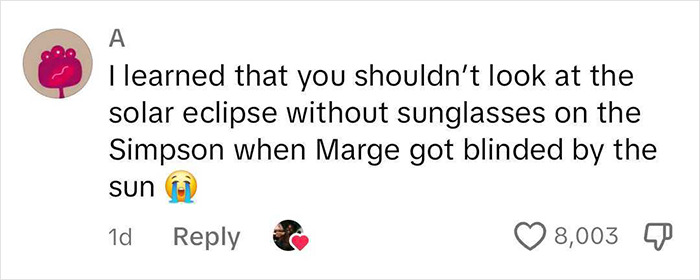
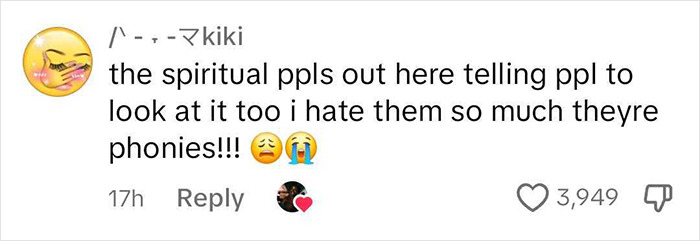
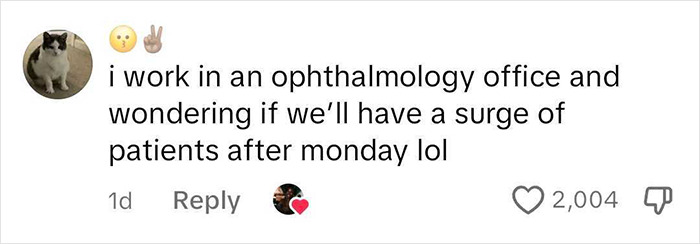

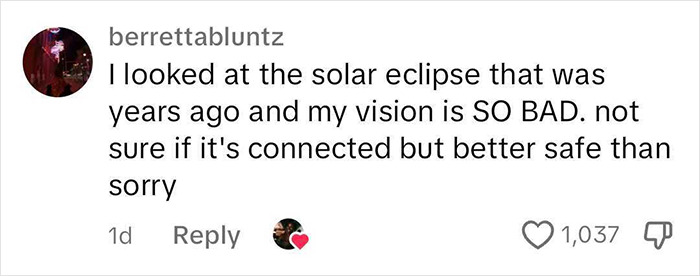
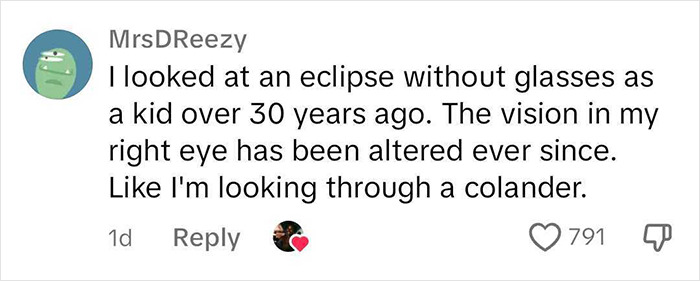
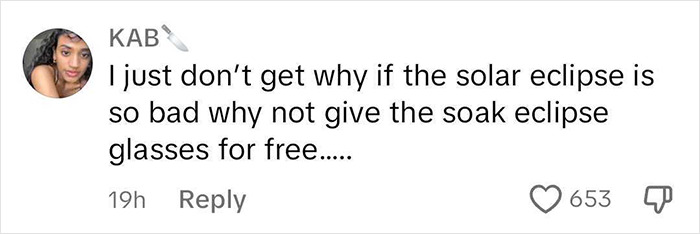

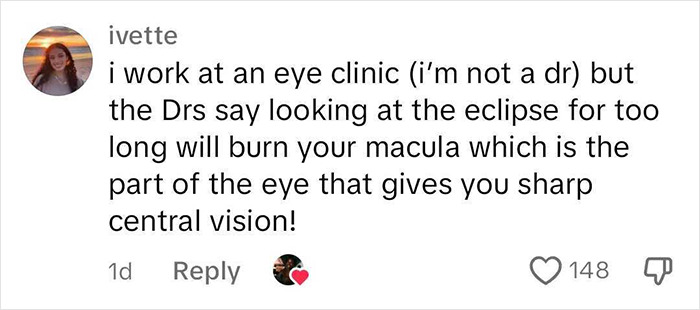

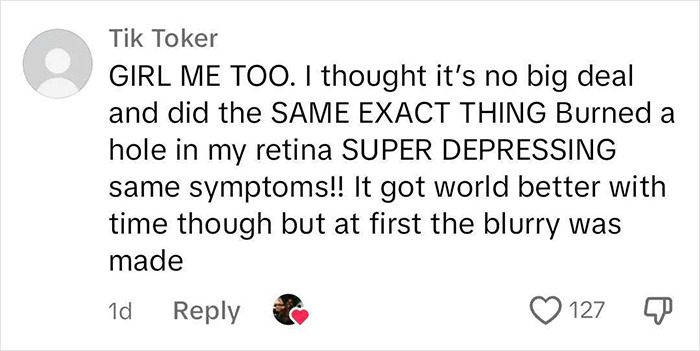

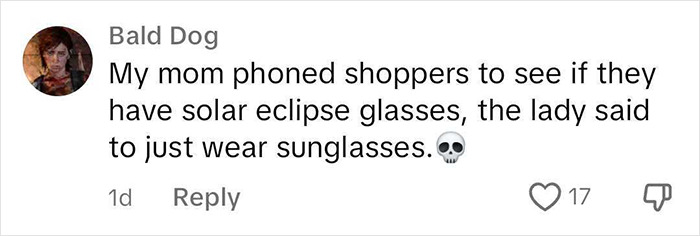
Thanks! Check out the results:
Health